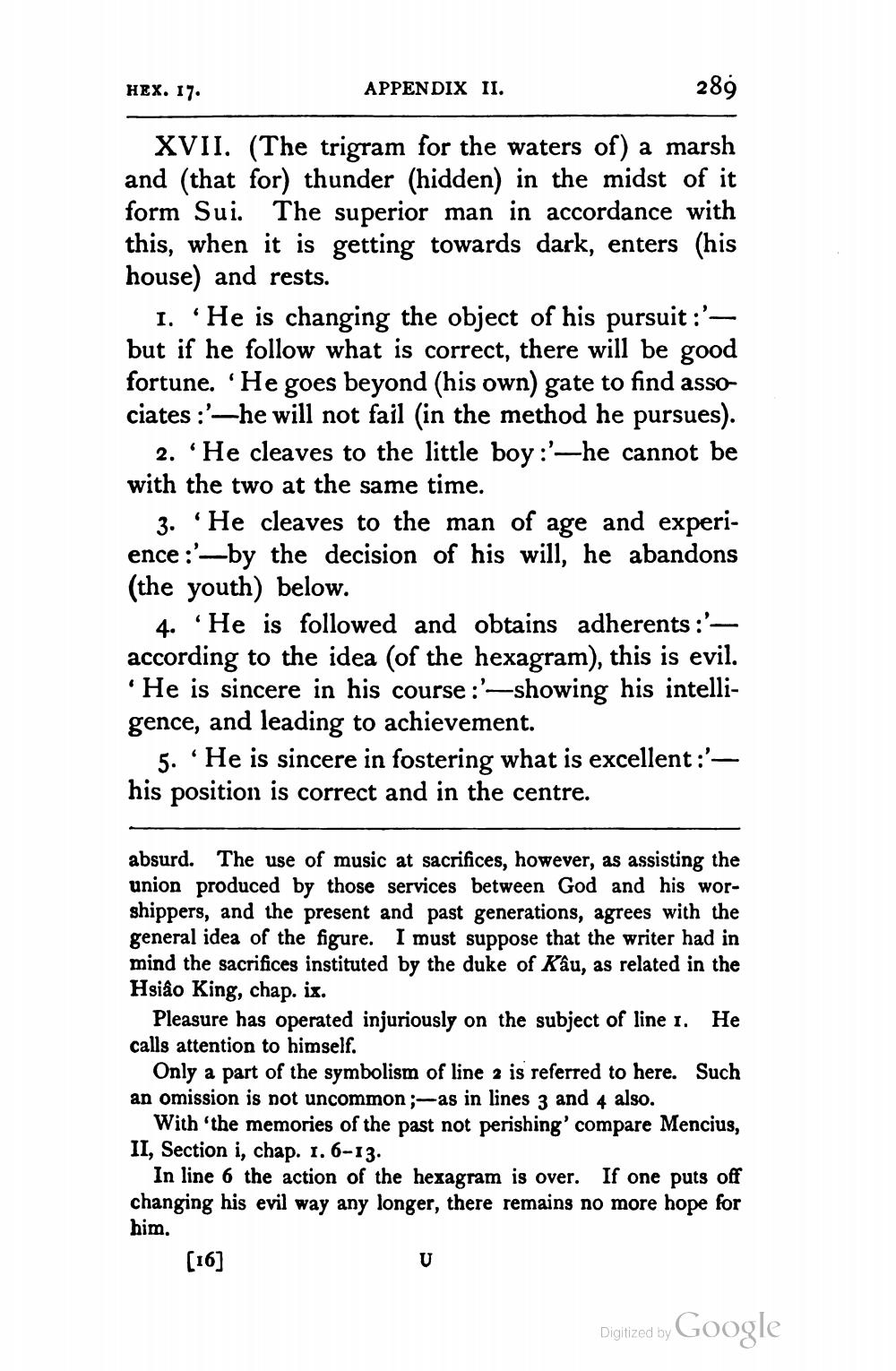________________
HEX. 17.
APPENDIX II.
289
XVII. (The trigram for the waters of) a marsh and (that for) thunder (hidden) in the midst of it form Sui. The superior man in accordance with this, when it is getting towards dark, enters (his house) and rests.
1. He is changing the object of his pursuit :'but if he follow what is correct, there will be good fortune. 'He goes beyond (his own) gate to find associates :'-he will not fail (in the method he pursues).
2. 'He cleaves to the little boy:'-he cannot be with the two at the same time.
3. 'He cleaves to the man of age and experience :'-by the decision of his will, he abandons (the youth) below.
4. 'He is followed and obtains adherents :'according to the idea (of the hexagram), this is evil. • He is sincere in his course : —showing his intelligence, and leading to achievement.
5. 'He is sincere in fostering what is excellent:'his position is correct and in the centre.
absurd. The use of music at sacrifices, however, as assisting the union produced by those services between God and his worshippers, and the present and past generations, agrees with the general idea of the figure. I must suppose that the writer had in mind the sacrifices instituted by the duke of Kâu, as related in the Hsiao King, chap. ix.
Pleasure has operated injuriously on the subject of line 1. He calls attention to himself.
Only a part of the symbolism of line 2 is referred to here. Such an omission is not uncommon ;-as in lines 3 and 4 also.
With the memories of the past not perishing' compare Mencius, II, Section i, chap. 1. 6-13.
In line 6 the action of the hexagram is over. If one puts off changing his evil way any longer, there remains no more hope for him.
[16]
Digitized by Google




